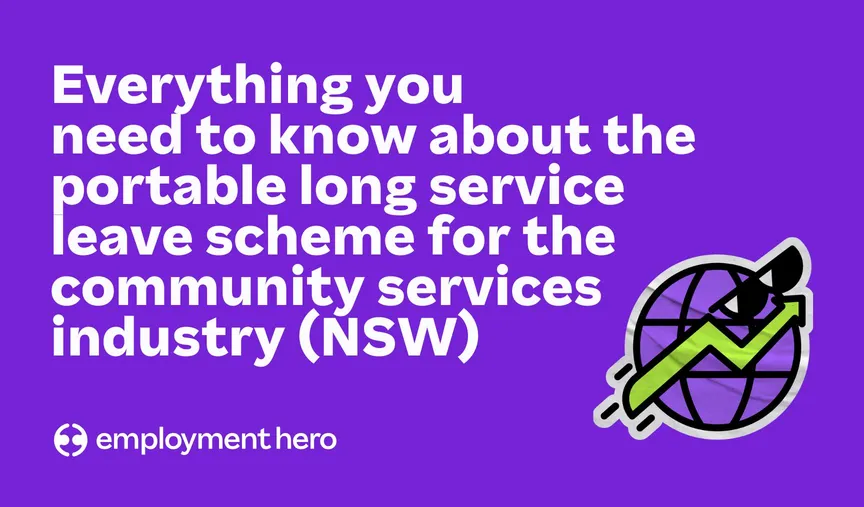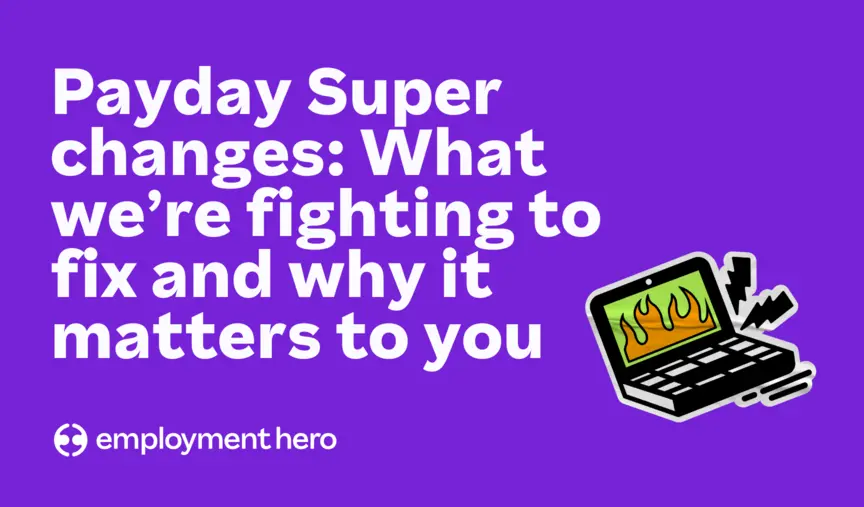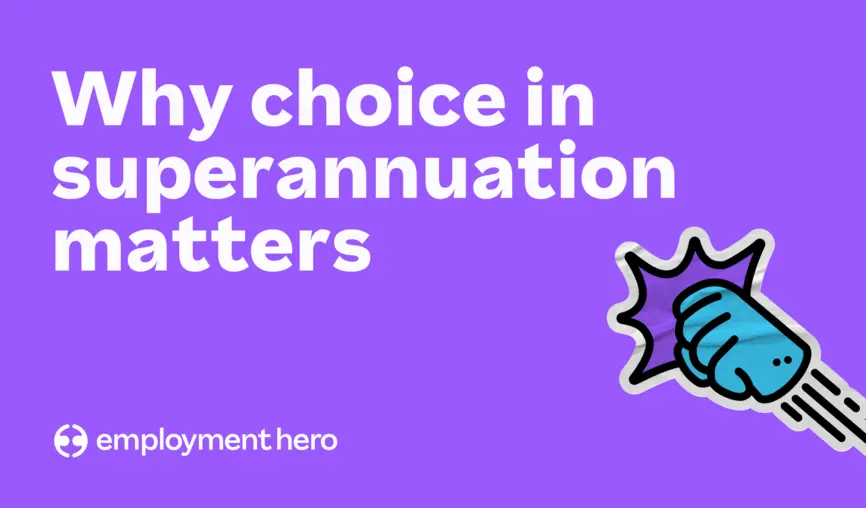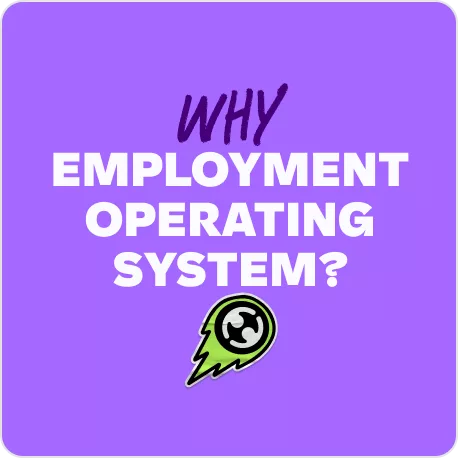Employer of Record (EOR): The Ultimate Guide
Looking to expand your business to new markets in a foreign country? An employer of record can act as a legal entity in multiple countries for your business.

In a world where outsourcing is becoming much more popular, an outsourced staffing agency is yet another avenue to explore.
The following article will dive into the employer of record and provide everything you need to know, along with how it can benefit your business if overseas expansion is on the cards.
What is an Employer of Record (EOR)?
For a business that has international expansion as part of its business plan, the process of hiring international workers can be made much simpler with a Global Employer of Record (EOR).
An EOR provides companies with an efficient process for the onboarding of new employees in new global markets without the need for establishing a separate entity in a different country.
Understanding an employer of record service
In the world of outsourcing, a global employer of record providers is another avenue to help simplify the complex hiring process for a business owner.
The laborious work of creating a new overseas entity for your business can be difficult, so why not make it easier with some local experts?
You need to account for banking, insurance, tax, compliance with local employment laws, and more to ensure the local infrastructure is set up and sufficient to employ workers. This can often turn people off from expanding overseas, but it shouldn’t.
A global employer of record service provides an infrastructure that negates the need to worry about most of these tasks. They provide a business with the opportunity to hire an employee in global markets compliantly, without the need for an entity or local employee onboarding process.
An EOR provider will hire workers on behalf of the client company while also taking on legal responsibility for them. This includes compliance with all payroll processing and employment, as well as the employment process, including:
- Issuing employment contracts
- Onboarding of local employees
- No need for work visas
- Payment of wages, taxes and benefits
- Background checks
- Long-term presence in the field
- All other human resource functions
The EOR will take care of human resources and payroll processing for the new employees, while your management team are responsible for managing their day-to-day work, just as you would with any other staff member.
This means you receive the benefit of an extended workforce, minus the risk. Discover how building a global team is now easier than ever with Employer of Records, saving you time and money here.
What is the difference between an EOR and PEO?
While some of the core elements are similar, an employer of record is slightly different from a Professional Employer Organisation (PEO). PEOs are co-employment arrangements, which are essentially the outsourcing of a business’s human resources and payroll administration.
This allows the company to focus their energy on daily employee management without having to worry about admin tasks like payroll.
In this situation, both the professional employer organisation and the business are required to be registered as an entity in the country of employment. They both also share legal responsibility for the employees.
A “global PEO” is a name given to the outsourcing of similar services minus the need for the local entity, which is essentially an employer of record, and this is why the two terms are often conflated.
The key difference is the entity requirement and legal responsibility which falls solely on the employer of record in an employer of record arrangement. Learn more about the professional employer organisations here. Learn more about professional employer organisations here.
When would you use an employer of record?
If global expansion is part of your business plan, an employer of record can significantly minimise the required tasks and risks, making it a more straightforward process. Often not a quick process, it can be difficult to organise these new pathways abroad when you have a lack of local expertise.
Outsourcing to an employer of record changes this, giving you an on-the-ground staffing agency and presence that will make your global growth objectives easier to achieve.
There are plenty of tasks involved in global expansion, and an EOR can be of benefit from even the very first step – your research phase, where you look to explore new markets.
An EOR makes it easier to evaluate an international market by hiring local workers and providing an easier and quicker way to begin your operations to test the waters. All while not having to commit too much time and money in the setup phase.
Having a legal employer locally can also protect you from independent contractor non-compliance, lessening your risk of employment and tax violations. The employer of record service will hire contractors on your behalf, ensuring that all local requirements are met.
With a global employer of record, you can also compliantly pay new staff without the need for localised legal business entities.
You can save yourself the hassle of setting up your own in-country entity, expediting the process and minimising your project timelines.
Read more: How to transition into a remote-first workplace
What are the benefits of hiring an employer of record?
Companies are always looking for ways to simplify their onboarding process for new employees. Find and hire the best international tech talent with Global Teams by checking out this handy guide here.
Along with managing the risk of legal, payroll, tax and immigration issues, the biggest benefit of an EOR is the speed at which you can begin operations in a new country. This convenient and cost-effective process is particularly handy for smaller companies that do not have the corporate infrastructure to manage local staff requirements.
Read more: Distributed Workforce Best Practices Playbook
The following are just some of the benefits of having an employer of record:
Time-saving
An established EOR is the quickest way to grow the global workforce of the client company, making it easier to find the perfect international employees for your team.
A process that can often take months at the very least can be performed in a fraction of time, thanks to the EOR’s pre-established entity and on-call network.
Read more: Get these remote work tools that make global teams work
Costs savings
By removing the regulatory need for a local subsidiary, your business can save thousands of dollars.
There is no need to spend money on human resources, finance, or legal functions as it is all included in the set EOR template.
Read more: Perks you can offer to remote employees
Compliance with local employment laws
Rather than dedicating internal time to satisfying compliant international labour laws and risking the severe consequences if they are not accounted for, an EOR takes this task off your hands and gives you the peace of mind in knowing it is being handled correctly.
The EOR provides a compliant solution for international employment regulations and removes your risk of fines, penalties, and business sanctions for non-compliance with international labour laws and practices.
Read more: Strange employment laws in the world
Reduced compliance risks
Continuing on from the last point, a range of other risk factors that come with hiring international employees, and are often made more difficult when working in a sector that you have no experience in, are shouldered by the employer of record. For the latest remote working statistics and trends coming into 2024, check out this resource here.
Above all, an employer of record frees up your time and energy to focus on core business functions while achieving global expansion in a much quicker timeframe. Just like the acquisition of HR software to simplify tasks, this process makes your operations leaner.
An employer of record will likely supply entities in a variety of countries, meaning you can easily test a few markets.
From the international employees’ point of view, they benefit by having the assurance that they’ll be taken care of by a local staffing agency, with the correct taxes being withheld.
Read more: Writing a remote working policy
Are there any limitations to using an Employer of Record?
It is important to keep in mind that an employer of record has no dealings with the employee when it comes to daily work responsibilities. The employer will manage the staff member like any other, which is why it is important to ensure the lines of responsibility between the company and the EOR are clear.
The employment relationship is between the staff member and the EOR, meaning your company gives up an element of control over the payroll process.
If the international employee is paid more regularly than your local team, this can cause some confusion. Your company’s payroll process is overridden by the frequency dictated by the employer of record.
There may be other variances in terms of insurance regulations which are also the responsibility of the EOR, so it is important to understand this before using their services.
The insurance details and payroll process should be stated in the service agreement and understood to ensure there is no adverse effect on business operations.
Read more: Goal setting for an effective remote team
What should you look for in an employer of record provider?
When choosing an employer of record provider, the extent of their knowledge in the country you are looking at expanding into is vital. The length of time the provider has been operating in the country is a good indicator of this.
You want a company that is not just relying on local partnerships or an external staffing agency and instead have an in-country entity.
A permanent entity will be able to provide local invoicing and HR services. It will also give you peace of mind that they will be providing the service in the country for a lengthy amount of time. Their local knowledge is also important when it comes to being able to manage clients’ HR and payroll services.
Ask for proven examples of direct employment experience in the country to exemplify their local expertise.
Read more: What are the benefits of a remote team?
Are employer of record services worth it?
You may be thinking, why not just hire foreign contractors, why do I need a staffing agency for employees? This sounds convenient and cost-effective but does not account for legal regulations and compliance risks.
You will also still need a formal legal business entity and may be subjected to fines or criminal litigation if you don’t have one.
Employer of record staffing agencies can simplify employment contracts, payroll taxes and other human resources requirements, which is why employers of record are becoming more widely used.
Your international employment needs and workplace safety can be simplified for a nominal cost in the overall scheme of international expansion.
To avoid this, save some effort and deal with the complexity of payment schedules, employee benefits, jurisdictions and insurance policies by opting for employer of record services.
Consider the costs and time involved in setting up companies overseas, along with the scope of liability, and whether or not they are outweighed by the cost of an EOR. We think you’ll see very quickly, which option is best.
Related Resources
-
 Read more: NSW Government introduces Portable Long Service Scheme for the Community Services Industry
Read more: NSW Government introduces Portable Long Service Scheme for the Community Services IndustryNSW Government introduces Portable Long Service Scheme for the Community Services Industry
The NSW Government has introduced portable long service leave for the community services industry. Learn what it is and what…
-
 Read more: Payday Super changes: What we’re fighting to fix and why it matters to you
Read more: Payday Super changes: What we’re fighting to fix and why it matters to youPayday Super changes: What we’re fighting to fix and why it matters to you
Big changes are coming to how superannuation is paid in Australia. Here’s what we’re asking Treasury to seriously consider updating…
-
 Read more: Why choice in superannuation matters
Read more: Why choice in superannuation mattersWhy choice in superannuation matters
What could be coming when Payday Super hits and what Employment Hero is doing about it.












